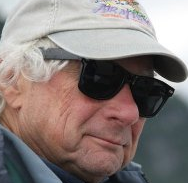Attorneys General Gang Up to Protect Polluters (At Taxpayers' Expense)
By Joe Rothstein
Editor, EINNews.com
Today’s chapter in the distortion of U.S. democracy comes to us from the once idyllic Chesapeake Bay, an incredibly valuable resource that has been on marginal life support for decades because of runaway pollution.
Virginia, Maryland, New York, West Virginia, and the District of Columbia, which all directly impact the Chesapeake, have voluntarily agreed to a “Blueprint” to control pollution and to the EPA’s role in enforcing it.
Incredibly, attorneys general of 21 states have joined a suit brought by the nation’s largest corporate farm, fertilizer and home building interests to stop the environmental clean-up of the Chesapeake. Twenty of those 21 states are nowhere near the Chesapeake.
The stated reason why these 21 attorneys general are meddling in a suit so far from their own borders is fear that if the Chesapeake plan goes forward they may face the prospect of having to clean up their own endangered waters.
Here’s the language in the amicus brief the AGs filed in the U.S. Court of Appeals: “If this [cleanup] is left to stand, other watersheds, including the Mississippi River Basin, could be next.”
Wouldn’t that be just awful? A realistic, enforceable plan to save the Mississippi River Basin.
For the record, the second largest dead zone on the planet is in the northern Gulf of Mexico, fed by the Mississippi River Basin. That area, about the size of the state of Connecticut, is devoid of oxygen and sea life. That’s why they call it a “dead zone.” It’s the equivalent of a biological desert.
Dead zones mostly result from the run off of chemicals that stimulate the overgrowth of algae, which then sinks to the bottom, decomposes and consumes oxygen. Whatever marine life is there either dies from lack of oxygen or leaves.
Now, you might ask, why would any state that depends of the waters of the Gulf spend taxpayer dollars to defend practices that are killing it?
For an answer we turn to Carl Hiaasen, the best-selling mystery writer, and columnist for the Miami Herald. In a column headed “Muddying the Waters Far from Home,” Hiaasen points to the fact that both Florida’s Governor Rick Scott and Attorney General Pam Bondi are up for re-election this year, and “are banking on hefty donations from developers and Big Agriculture. That’s the only reason they stuck their noses into this lawsuit.”
Hiaasen says “There’s a perverse irony in the fact that the Scott administration is spending public dollars to defend polluters up North while our own most precious waterways are being poisoned.”
“Perverse” is a pretty accurate description of this sorry episode.
Another Attorney General challenging the Chesapeake clean-up is Alaska’s Michel Geraghty, an appointee of Governor Sean Parnell, who also faces re-election this year. Parnell is a former oil company lobbyist. Alaska, of course, is nowhere near either the Chesapeake or the Mississippi Basin. It's a state that was desperate for its own environmental clean-up after the Exxon Valdez ran aground and spilled monumental gallons of oil into pristine Prince William Sound.
The Chesapeake Bay’s watershed land-to-water ratio (14:1) is the largest of any coastal water body in the world. What happens to it isn’t just a local story or one that can be much improved by purely voluntary solutions. The effort to reverse the Bay’s decline has been a work in progress for more than 30 years.
Now, finally, there’s a real, enforceable plan for limiting pollution and the leaders of all of the immediately impacted states have signed onto it.
But that plan will require corporate farmers, poultry raisers, fertilizer companies and others to spend a bit more to control their poisons---something they should have done years ago, voluntarily.
Instead of being good corporate citizens they have muscled their political pawns into spending taxpayer dollars, perversely, to defend their massive pollution.
Carl Hiaasen observes that Florida’s attorney general and the others “aren’t suing on behalf of the citizens of Florida; they’re suing on behalf of big agricultural and development interests that don’t want the U.S. Environmental Protection Agency enforcing clean-water laws anywhere.”
Unfortunately, it’s another chapter in the ongoing story of the deadly mix of money and profit distorting the public interest. This one is a particularly bizarre read.
(Joe Rothstein can be contacted at joe@einnews.com)
Post-publication note: Many readers have reacted to this article by asking what they can do to help efforts to clean up Chesapeake Bay. Reader Allie Toomey, Education Coordinator of EarthEcho International in Washington, D.C., points out that the Chesapeake Bay Foundation posts an on-line pledge for supporters at http://www.cbf.org/join-us/take-action/blueprint-pledge. This is an excellent way for everyone concerned about Bay restoration and outraged at the attorneys general interference to fight back. I might also suggest, if you live in one of the 21 states defending pollution in your name, contact your attorney general and give him hell.




